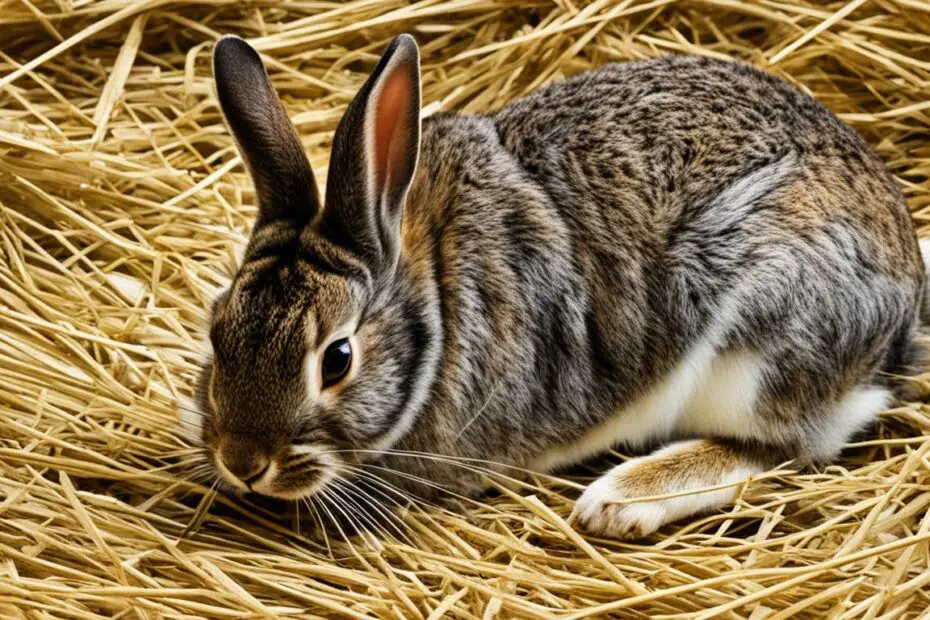The sudden and unexpected death of a rabbit can be a distressing and heartbreaking experience for its owner. Understanding the causes behind this alarming scenario is crucial to provide some closure and insight into rabbit health and care.
There are three main reasons for a rabbit to scream and then die: fear, heart attack, and pain. Rabbits may experience extreme fear from loud noises or the presence of predatory animals, which can lead to a heart attack or excessive physical pain. It is important to identify the specific cause to better understand and address these situations.
Key Takeaways:
- Rabbit deaths can be distressing for owners, and understanding the causes can provide closure and insight into rabbit health and care.
- Sudden death in rabbits can be caused by fear, heart attacks, and pain.
- Identifying the specific cause is important for addressing and preventing these situations.
- Rabbits may scream and die due to extreme fear, loud noises, or the presence of predatory animals.
- Heart attacks and excessive physical pain can also lead to sudden death in rabbits.
How does a rabbit show its fear?
When rabbits experience fear, they exhibit specific signs through their body language. Understanding these signs can help pet owners recognize when their rabbits are feeling scared or threatened. Some common indicators of fear in rabbits include:
- Tapping their back legs gently: Rabbits may tap their hind legs on the ground as a way to express their fear or unease. This behavior is often accompanied by a tense body posture.
- Hiding: When rabbits are afraid, they seek shelter or hide in enclosed spaces to avoid detection. This can include burrowing into their bedding, hiding under furniture, or squeezing into small corners.
Rabbits have highly developed senses and can often sense real dangers around them. Their acute hearing and keen sense of smell allow them to detect potential threats or predators, which can trigger their fear response. Additionally, when rabbits are scared, their heart rate increases significantly.
To determine the cause of fear in rabbits, it is crucial for owners to assess their surroundings. Loud noises, sudden movements, or the presence of other animals can all contribute to a rabbit feeling scared and anxious.
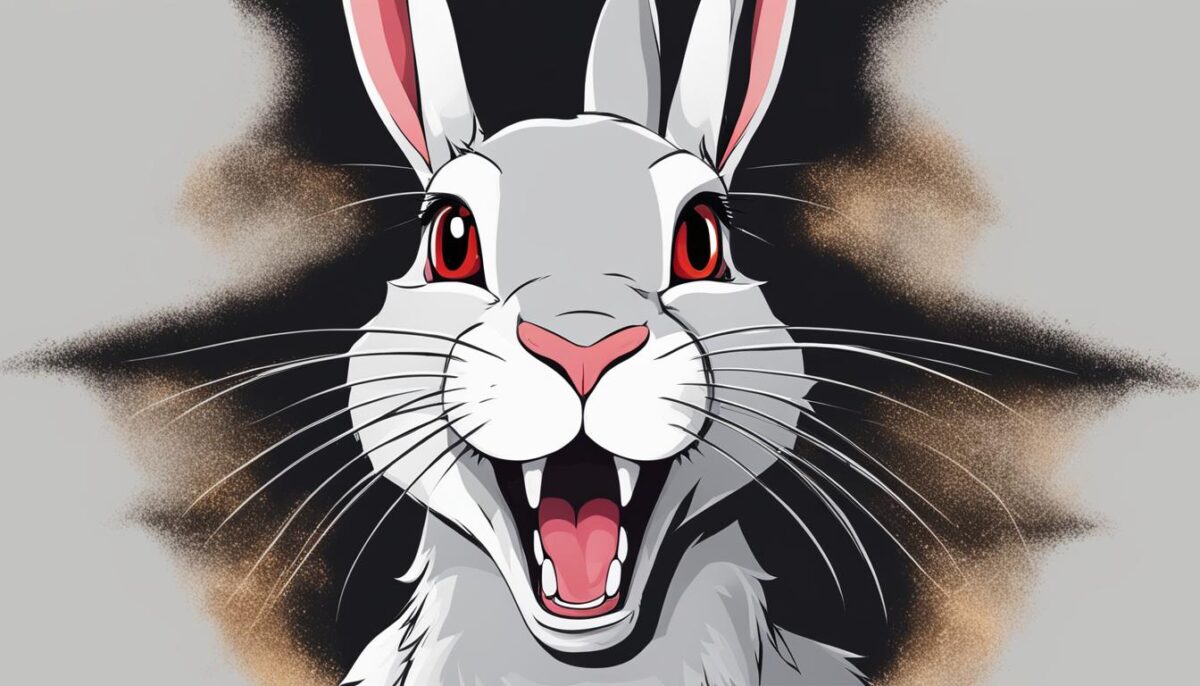
“Understanding a rabbit’s body language can help pet owners provide a safe and comforting environment for their furry companions.”
Signs of Heart Disease in Rabbits
Rabbits, like any other animal, can suffer from heart disease, a condition that can have severe consequences and even lead to sudden death. Identifying the signs and symptoms of heart disease in rabbits is crucial for early detection and proper treatment. However, diagnosing heart disease in rabbits can be challenging, as they can often live with the condition for an extended period without displaying severe symptoms.
Some common signs of heart disease in rabbits include:
- Shortness of breath
- Heavy breathing
- Irregular heartbeat
These symptoms may appear intermittently or become more pronounced over time. It is essential to monitor your rabbit’s behavior and look out for any changes in their breathing patterns or heart rate.
In some cases, heart disease in rabbits can be triggered or exacerbated by other health conditions, such as obesity, lung diseases, or pneumonia. Therefore, it is crucial to address any underlying health issues to prevent further complications.
To accurately diagnose heart disease in rabbits, it is necessary to consult a veterinarian. A veterinarian will perform a comprehensive examination, including assessing the rabbit’s heartbeat and conducting additional medical tests as needed.
Early detection and appropriate treatment can significantly improve the quality of life for rabbits with heart disease. With proper care and veterinary guidance, you can help manage the condition and provide your rabbit with a comfortable and fulfilling life.
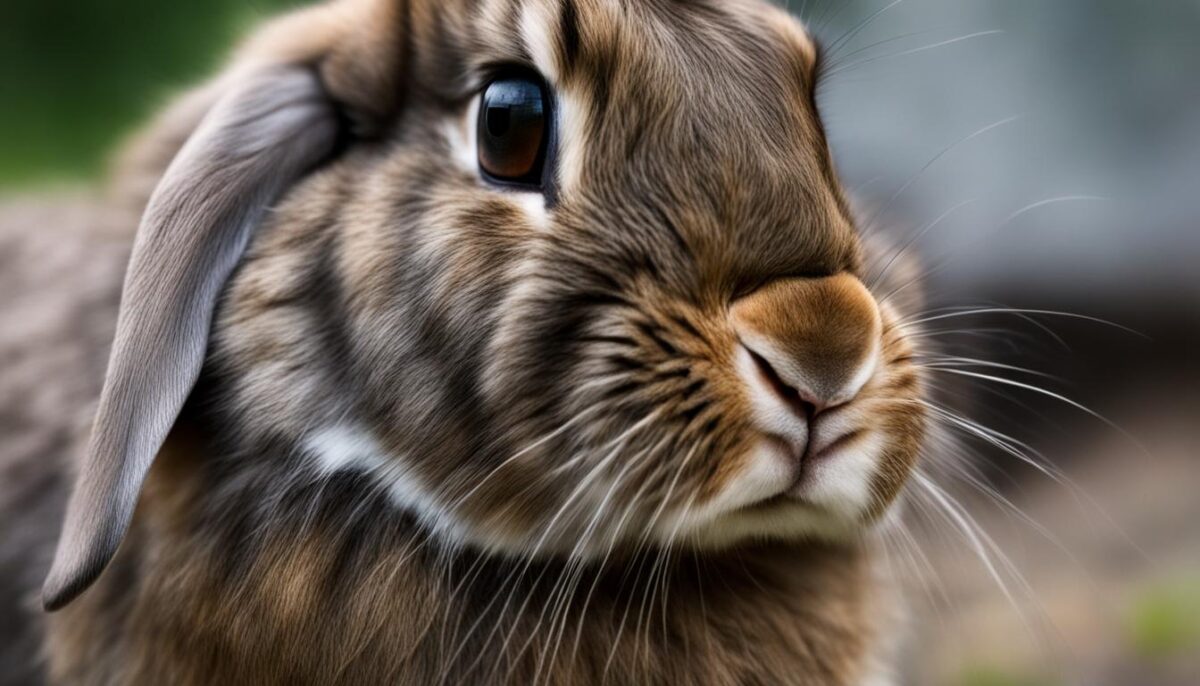
| Symptoms | Treatment Options |
|---|---|
| Shortness of breath | Medication to improve heart function Supplemental oxygen therapy, if necessary |
| Heavy breathing | Diuretics to reduce fluid buildup in the lungs Antibiotics, if a respiratory infection is present |
| Irregular heartbeat | Heart rhythm medications Cardiovascular surgery, in severe cases |
Why do some rabbits die with their eyes open?
It can be alarming to discover a rabbit that has passed away with its eyes open. This phenomenon is often associated with poisoning, which can have devastating effects on rabbits. Agricultural toxins found in certain vegetables and fruits can be fatal to rabbits when ingested. It’s crucial to feed rabbits only healthy and quality vegetables to prevent poisoning incidents. Additionally, intentional poisoning by someone should also be considered as a possible cause. To determine the exact cause of a rabbit’s death, a postmortem examination conducted by a veterinarian is necessary.
Rabbits with eyes open can be a distressing sight, but by understanding the potential reasons behind it, owners can take steps to prevent such tragic outcomes.
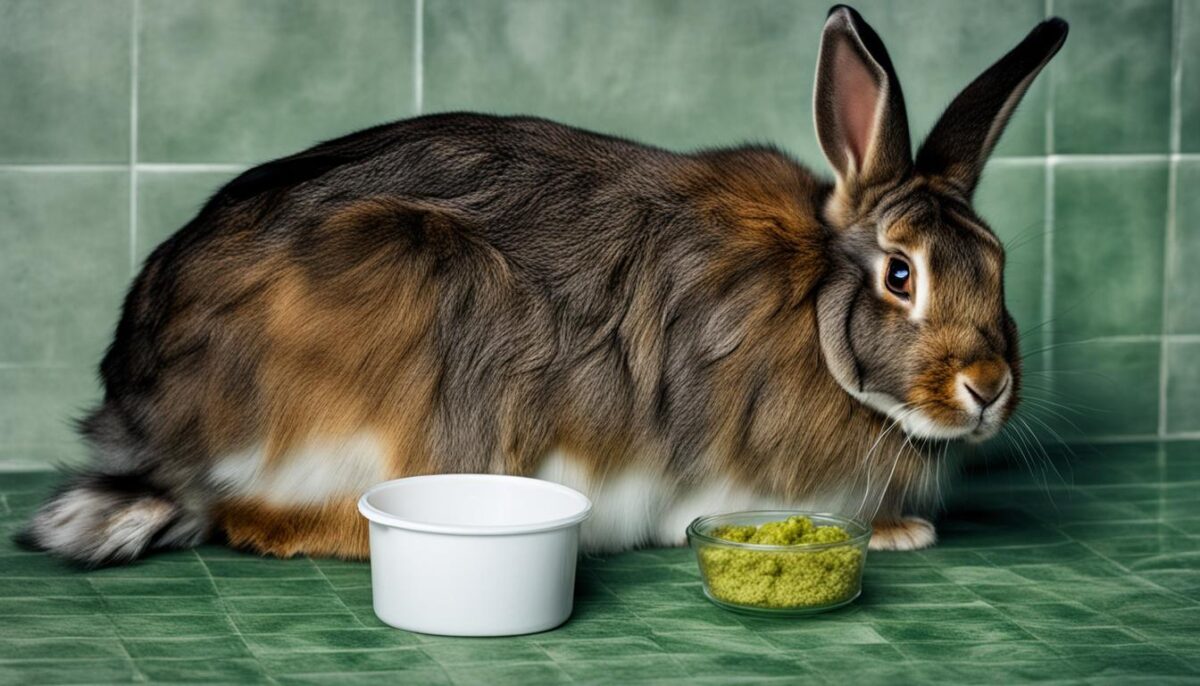
| Poisoning symptoms in rabbits | Preventive measures |
|---|---|
|
|
How to Prolong the Lifespan of Your Rabbit?
To ensure the longevity and well-being of your rabbit, proper care and attention are crucial. By following these tips and guidelines, you can help prolong your rabbit’s life and enjoy many happy years together.
A Balanced Diet for a Healthy Rabbit
A nutritious diet plays a vital role in promoting a rabbit’s longevity. Provide your rabbit with a balanced diet rich in protein and essential vitamins. High-quality hay should be the cornerstone of their diet, supplemented with fresh vegetables and a small amount of pellets formulated specifically for rabbits. Fruits can be an occasional treat, but they should be given in moderation as they are high in sugar.
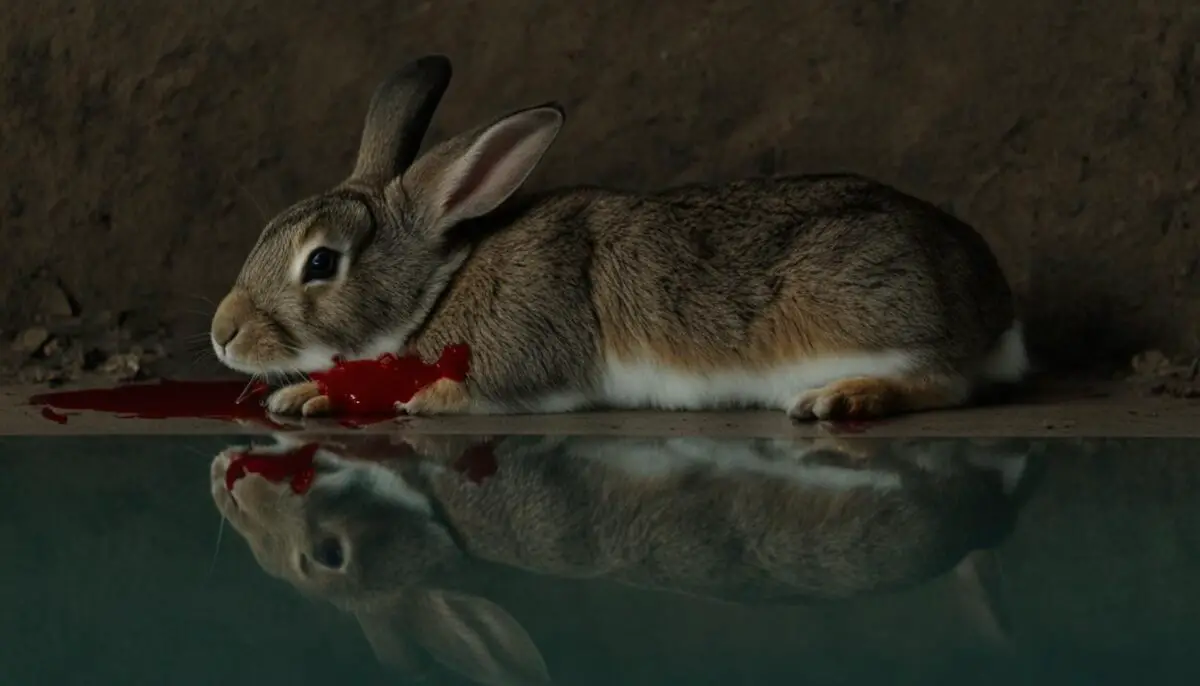
Coping with the Death of a Rabbit
Losing a beloved pet rabbit can be a challenging and emotional experience for the owner. The bond between a pet and its owner can be incredibly strong, and the loss of a furry friend can leave a void in one’s heart. It is important to allow yourself time to grieve and process your emotions. Seeking support from friends, family, or pet loss support groups can be beneficial during this difficult time.
Remembering the love and care provided to the rabbit can bring comfort and solace. Reflecting on the happy moments spent together and cherishing the memories can help ease the pain of loss. Keep in mind that grieving is a personal process, and everyone copes differently. Give yourself permission to feel the range of emotions that come with loss and honor your unique grieving journey.
It is crucial to consider the welfare of any other rabbits in your care. These companions may also be grieving the loss of their furry friend. Providing them with extra attention, companionship, and a safe and comfortable environment can help them cope with the loss as well.
Seeking closure and understanding the circumstances surrounding the rabbit’s death can aid in the healing process. If you have unanswered questions or if there are aspects of the situation that are unclear, it may be helpful to discuss them with a veterinarian or pet loss counselor.
Take your time to heal and be kind to yourself throughout the grieving process. Remember that grief takes time, and it is normal to experience a range of feelings, such as sadness, anger, guilt, or even relief. Each person’s journey is unique, and there is no right or wrong way to grieve. Surround yourself with support, engage in self-care activities, and be patient with yourself as you navigate this difficult time.
Support Resources for Coping with Pet Loss
- Pet loss support groups
- Online forums and communities
- Pet loss hotlines
- Counseling services specializing in pet loss
Remember, grieving the loss of a beloved pet is a testament to the love and bond shared. By allowing yourself to grieve and seeking support, you are honoring the profound impact your rabbit had on your life and ensuring their legacy lives on.
Conclusion
The sudden and unexpected death of a rabbit can be distressing and leave owners feeling devastated and confused. Understanding the possible causes, such as fear, heart attacks, and severe pain, can provide some insight into these situations. It is important to monitor a rabbit’s health, address any signs of distress, and seek veterinary attention when needed.
By providing proper care, a balanced diet, and a safe environment, owners can help promote the well-being and longevity of their beloved rabbits. Regular check-ups with a veterinarian, ensuring a stress-free environment, and offering appropriate exercise and mental stimulation can significantly contribute to a rabbit’s overall health and happiness. Additionally, being aware of potential dangers and removing any hazardous objects or substances from their surroundings can play a crucial role in preventing rabbit loss.
Grieving the loss of a rabbit is a natural and personal process. Seeking support from friends, family, or support groups can provide comfort during this difficult time. Remembering the love and care provided to the rabbit can bring solace and ease the pain of their absence. While every rabbit is unique, understanding the potential causes of rabbit death can help rabbit owners make informed decisions, prioritize their well-being, and cherish the memories of their beloved companions.
FAQ
What are the causes of my rabbit screaming and then dying?
The three main reasons for a rabbit to scream and then die are fear, heart attack, and pain.
How does a rabbit show its fear?
Rabbits may tap their back legs gently or hide to avoid detection when they are afraid. They also have an increased heart rate and exhibit signs of extreme fear in their body language.
What are the signs of heart disease in rabbits?
Signs of heart disease in rabbits include shortness of breath, heavy breathing, and an irregular heartbeat.
Why do some rabbits die with their eyes open?
Some rabbits may die with their eyes open as a result of poisoning, particularly from certain foods containing agricultural toxins, or intentional poisoning by someone.
How can I delay the death of my rabbits?
To delay the death of rabbits, provide them with a balanced diet rich in protein and essential vitamins, ensure they get regular exercise, and create a safe environment free from sharp objects. Regular check-ups with a veterinarian are also recommended.
What are the common causes of sudden death in rabbits?
Common causes of sudden death in rabbits include infections (e.g., pasteurellosis and myxomatosis), trauma (e.g., falls or accidents), toxins (e.g., antifreeze), and heart problems (e.g., cardiomyopathy).
How can I cope with the death of my rabbit?
Coping with the death of a rabbit can be challenging. Allow yourself time to grieve and seek support from friends, family, or support groups. Remember the love and care provided to the rabbit, consider the welfare of other rabbits, and seek closure by understanding the circumstances surrounding the rabbit’s death.
Can a rabbit’s death be prevented?
While it is not always possible to prevent a rabbit’s death, providing proper care, a balanced diet, and a safe environment can promote their well-being and potentially prolong their lifespan.


